Media
Even at the height of Hollywood’s political consciousness, which ended in the notorious Cold War repression of the Hollywood Ten and many others in the industry, American movies usually rendered their politics in code. But there’s nothing coded or coy about Bulworth. Whether you like the movie or not, whether you like its humor or not, its politics is definitely in your face. And, as far as it goes, that politics is much more left than anything we’ve seen in the U.S. for a very long time. | more…
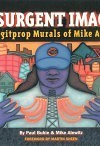
The most prolific U.S. labor muralist since the 1940s, Alewitz follows the traditions of Diego Rivera, José Clemente Orozco, and David Siqueiros as well as the early painters of the Russian Revolution. With a demonstrated blend of artistic integrity and political commitment, Insurgent Images combines grand historical themes with enlivening detail, to illustrate the interplay between personality and event. Alewitz brings to this tradition his own rich sense of irony, humor, and fantasy to illuminate the hidden spaces where connections between the workforce of the U.S. and its extended relatives across the planet are to be found. | more…

Popular culture has been a powerful force in the United States, connecting disparate and even hostile constituencies. The novels of the late eighteenth and early nineteenth centuries, the theater and minstrel shows of the mid-nineteenth century, movies and the introduction of television and computers in the twentieth century are the building blocks that Jim Cullen uses to show how unique and vibrant cultural forms overcame initial resistance and enabled historically marginalized groups to gain access to the fruits of society and recognition from the mainstream. | more…
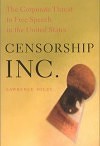
Soley shows how as corporate power has grown and come to influence the issues on which ordinary Americans should be able to speak out, so new strategies have developed to restrict free speech on issues in which corporations and property-owners have an interest. From the tobacco industry’s attempts to prevent information about the effects of smoking on health from becoming public to corporate lawyers advising tire manufacturers not to disclose that their products are causing death on the roads, what are often seen as legitimate business practices constantly narrows our right to free speech. | more…
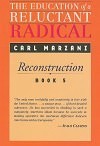
“This book spans a period of forty years, from my entering jail in March of 1949 to November of 1989, when the Berlin Wall came down. It touches nine presidencies—all dominated by the Cold War. That long period contained some of the most traumatic events in the history of the United States: the assassinations of John F. Kennedy, Robert Kennedy, Martin Luther King, and Malcolm X, as well as the wars in Korea and Vietnam.” | more…

Writings on educational theory, pedagogy, and the relationship between education and popular democracy. | more…
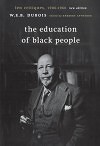
Undoubtedly the most influential black intellectual of the twentieth century and one of America’s finest historians, W.E.B. Du Bois knew that the liberation of African Americans required liberal education and not vocational training. He saw education as a process of teaching certain timeless values: moderation, an avoidance of luxury, a concern for courtesy, a capacity to endure, a nurturing love for beauty. At the same time, Du Bois saw education as fundamentally subversive. This was as much a function of the well-established role of education—from Plato forward—as the realities of the social order under which he lived. He insistently calls for great energy and initiative; for African Americans controlling their own lives and for continued experimentation and innovation, while keeping education’s fundamentally radical nature in view. | more…
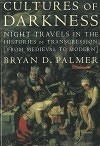
Peasants, religious heretics, witches, pirates, runaway slaves, prostitutes and pornographers, frequenters of taverns and fraternal society lodge rooms, revolutionaries, blues and jazz musicians, beats, and contemporary youth gangs: those who defied authority, choosing to live dangerously outside the defining cultural dominions of early insurgent and, later, dominant capitalism are what Bryan D. Palmer calls people of the night. | more…
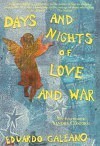
Days and Nights of Love and War is the personal testimony of one of Latin America’s foremost contemporary political writers. In this fascinating journal and eloquent history, Eduardo Galeano movingly records the lives of struggles of the Latin American people, under two decades of unimaginable violence and extreme repression. Alternating between reportage, personal vignettes, interviews, travelogues, and folklore, and richly conveyed with anger, sadness, irony, and occasional humor, Galeano pays loving tribute to the courage and determination of those who continued to believe in, and fight for, a more human existence. | more…
Pier Paolo Pasolini, born in Bologna on March 5, 1922, and raised in the Friuli region of Venetia, is, in the words of Alberto Moravia, the major Italian poet of the second half of the twentieth century. He was also a filmmaker, novelist, and political journalist of genius. He was murdered twenty years ago, on November 2, 1975. | more…

The Political Culture of Black America
Many people from divergent ethnic backgrounds, speaking various languages, and possessing different cultures now share a common experience of inequality in the United States. Yet there is an absence of unity among these constituencies, in part because their leaders are imprisoned ideologically and theoretically by the assumptions and realities of the past. | more…

Brings together essays on literature, the plastic arts, theater, and music, which stand with the best of modern criticism. | more…









